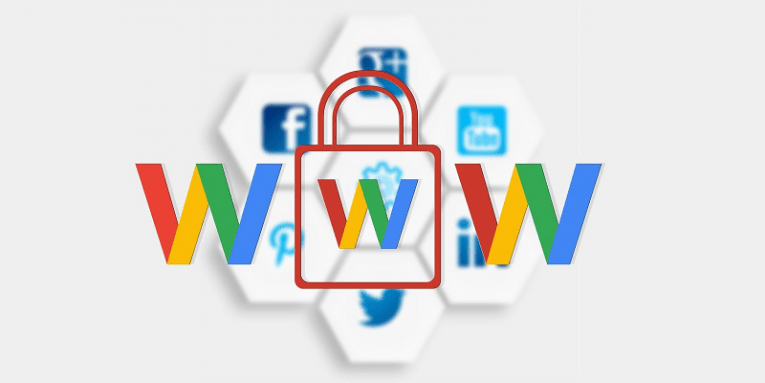Is Your Web Browser Secure? 4 Vulnerabilities to Keep in Mind

Have you ever thought how safe your web browser is? You are probably often told that you have to be careful about the websites you visit and the files you download. However, what about your browser security? What about the tool that helps you browse the Internet? The truth is that individual users often overlook the necessity to configure their browser settings. Therefore, we would like to draw your attention to a number of web browser based vulnerabilities that can be exploited by cybercriminals. If you know what to pay attention to, you can secure your browser and avoid various threats.
There are multiple web browsers out there. Mozilla Firefox, Google Chrome, Microsoft Edge, Apple Safari, and other popular browsers are those that you find pre-installed on most of the computers. They come with default settings and configurations that are often optimized for functionality. And yes, we would all love our browsers to perform at their best, but functionality is often optimized at the cost of decreased security.
The main browser security factors
There are several browser security factors that allow cybercriminals to take advantaged of web browser based vulnerabilities. What’s more, these security issues are especially relevant for individual users. If you work at a company that has organizational-level IT policies, your browser should be configured according to your workplace rules. However, individual users may not be aware of all the security strategies, and so this is why we are writing this entry.
Before we go to the list of web browser based vulnerabilities, we would like to draw your attention to other cybersecurity factors that often depend on users themselves. For instance, there is a tendency for users to click various outgoing links without any second thought. Think of all the outgoing links you encounter in your emails or in the websites that you visit. Not all of them lead to safe websites. Users are strongly discouraged from clicking links when they are not sure the links are legitimate or not.
Also, it is common for computer software packages to come bundled with additional programs by default. This automatically increases the number of potential vulnerabilities that could be exploited by cybercriminals. Software manufacturers release updates and patches that fix those vulnerabilities almost as soon as they are discovered. However, the reluctance of some users to update their software regularly can lead to a number of security problems.
What’s more, the websites you visit may require you to enable a certain browser feature or install more software. And installing more unfamiliar software automatically puts you at risk. Finally, browser security depends a lot on users themselves, and if users don’t know how to configure their browsers, that’s also a security risk. Not to mention that sometimes users are simply unwilling to tweak the settings that would make their browsers more secure.
Specific web browser based vulnerabilities
As mentioned, sometimes default settings and functions could be associated with decreased browser security. We believe that you should know of these features that may impede your browser’s security.
ActiveX
ActiveX technology works on Microsoft Internet Explorer. It has long been a questionable browser component, although it is almost a must in some parts of the world. ActiveX allows web browser to utilize various applications. A web page that requires ActiveX could use the components that are already on your system, or it could download another component individually. Although this increases the usual browser functionality, it comes with multiple vulnerabilities, too. Using this feature increases the chances of a cyberattack because some ActiveX vulnerabilities could be exploited through Internet Explorer even if particular object was never supposed to be used in a web browser. There is also an entire database on ActiveX vulnerabilities that you can check out here.
Java
Java is a programming language that is used to develop active content on various websites. To run the Java code that is part of a website, you need an applet. An applet can be provided by the website or it has to be installed on the operating system. Java applets are independent from your operating system. Normally, Java applets cannot interact with the rest of the system as they have their own interaction “sandbox.” However, there are vulnerabilities that may allow an applet to ignore these restrictions. Thus, if you visit websites that employ Java, there is always a risk that someone might attempt to gain access to your system through the Java applet.
Plug-ins and cookies
Plug-ins are applications that are used on a web browser. They are similar to ActiveX, but the main difference is that they cannot work outside of a web browser. There are plug-in developing standards developed by Netscape, and they are used by multiple web browsers. The main problem with plug-ins is that they could have programming and design flaws that can eventually lead to vulnerability exploitation.
Cookies are not applications, but they could still be exploited by cybercriminals. Cookies are designed to store information about the websites you visit. Each time you close a website, your session cookies should be cleared, but there are persistent cookies that may remain on your computer for a long time. What’s more, if cookies are used for authentication, cybercriminals could obtain these cookies to get unauthorized access to your account. This is strongly associated with safe password practice, where you should not save your passwords on your browser. If possible, employ a reliable tool like Cyclonis Password Manager to leave cybercriminals with less opportunities to steal your data.
JavaScript and VBScript
JavaScript and VBScript are both scripting languages that are used to make websites more interactive. VBScript is used solely on Internet Explorer, so it is not widely applied across different websites because it is not compatible with other browsers. Nevertheless, both scripting languages are rather similar, and they both can bring browser security issues.
Scripting support is usually enabled by default on most browsers. This feature could allow hackers to exploit vulnerabilities and use scripting language to access data in different domains, when you use vulnerable browser to access a compromised website. What’s more, scripting could also be used to evade detection by security programs, which shows that you should clearly consider disabling the feature.
All in all, there are many ways to enhance your browser’s security. If you don’t know where to begin, you can start with your browser’s privacy policy. You can also go through the security settings in your browser’s menu, too. And remember that staying away from unfamiliar and suspicious websites is always the first step towards better browser security.








